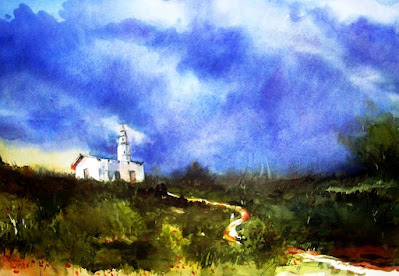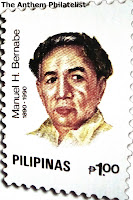The 200th Birth Anniversary of Frederic Chopin- The Poet of the Piano
 Frédéric François Chopin, 1 March 1810 – 17 October 1849) was a Polish composer and virtuoso pianist of French-Polish parentage. He was one of the great masters of Romantic music.
Frédéric François Chopin, 1 March 1810 – 17 October 1849) was a Polish composer and virtuoso pianist of French-Polish parentage. He was one of the great masters of Romantic music.Chopin was born in the Napoleonic Duchy of Warsaw to a French-expatriate father and Polish mother, and was a child-prodigy pianist and composer. Following the Russian suppression of the Polish November 1830 Uprising, Chopin settled in France as part of the Polish Great Emigration. In Paris he supported himself as a composer and piano teacher,
 giving few public performances. After romantic involvements with several Polish women, from 1837 to 1847 he carried on a relationship with the French novelist Amantine Aurore Lucie Dupin, baronne Dudevant, better known by her pseudonym, George Sand. For the greater part of his life
giving few public performances. After romantic involvements with several Polish women, from 1837 to 1847 he carried on a relationship with the French novelist Amantine Aurore Lucie Dupin, baronne Dudevant, better known by her pseudonym, George Sand. For the greater part of his life  Chopin suffered from poor health; he died in Paris, aged 39, of pulmonary tuberculosis.
Chopin suffered from poor health; he died in Paris, aged 39, of pulmonary tuberculosis.The great majority of Chopin's compositions were written for the piano as solo instrument; all his extant works feature the piano in one way or another. They are technically demanding but emphasize nuance and expressive depth. Chopin invented musical forms such as the instrumental ballade and made major innovations to the piano sonata, mazurka, waltz, nocturne, polonaise, etude, impromptu and prelude.
Chopin's father was Nicolas Chopin, a Frenchman from Lorraine who had emigrated to
 Poland in 1787 at the age of sixteen and had served in Poland's National Guard during the Kościuszko Uprising. In France he had been baptized Nicolas but later, living in Poland, he used the Polish form of his given name, Mikołaj. He subsequently tutored children of the aristocracy, including the Skarbeks, whose poorer relative, Justyna Krzyżanowska, he married. The wedding took place at the 16th-century parish church in Brochów on 2 June 1806. (Justyna's brother would become the father of American Union General Włodzimierz Krzyżanowski.
Poland in 1787 at the age of sixteen and had served in Poland's National Guard during the Kościuszko Uprising. In France he had been baptized Nicolas but later, living in Poland, he used the Polish form of his given name, Mikołaj. He subsequently tutored children of the aristocracy, including the Skarbeks, whose poorer relative, Justyna Krzyżanowska, he married. The wedding took place at the 16th-century parish church in Brochów on 2 June 1806. (Justyna's brother would become the father of American Union General Włodzimierz Krzyżanowski.Frédéric Chopin was the couple's second child and only son. He was born at Żelazowa Wola, forty-six kilometers west of Warsaw, in what was then the Duchy of Warsaw. The parish record of the baptism
 (discovered in 1892) gives 22 February 1810 as his date of birth, b t 1 March was the date on which the composer and his close family celebrated his birthday; and, according to Chopin himself in a letter addressed to the Chairman of the Polish Literary Society in Paris on 16 January 1833, he was "born 1 March 1810 at the village of Żelazowa Wola in the Province of Mazovia." He was baptized on Easter Sunday, 23 April 1810, in the same church in Brochów where his parents had married. The parish register cites his given names in the Latin form Fridericus F
(discovered in 1892) gives 22 February 1810 as his date of birth, b t 1 March was the date on which the composer and his close family celebrated his birthday; and, according to Chopin himself in a letter addressed to the Chairman of the Polish Literary Society in Paris on 16 January 1833, he was "born 1 March 1810 at the village of Żelazowa Wola in the Province of Mazovia." He was baptized on Easter Sunday, 23 April 1810, in the same church in Brochów where his parents had married. The parish register cites his given names in the Latin form Fridericus F ranciscus; in Polish he was called Fryderyk Franciszek.
ranciscus; in Polish he was called Fryderyk Franciszek.In October 1810, when Chopin was seven months old, the family moved to Warsaw as his father had accepted an offer from the celebrated lexicographer Samuel Linde, to teach French at the
 Warsaw Lyceum. The school was housed in the Saxon Palace, and the Chopin family lived on the palace grounds. In 1817 Grand Duke Constantine requisitioned the Saxon Palace for military purposes, and the Lyceum was moved to the Kazimierz Palace, which also hosted the newly founded Warsaw University. The family lived in a spacious second-floor apartment in an adjacent building. Fryderyk Chopin attended the Warsaw Lyceum from 1823 to 1826.
Warsaw Lyceum. The school was housed in the Saxon Palace, and the Chopin family lived on the palace grounds. In 1817 Grand Duke Constantine requisitioned the Saxon Palace for military purposes, and the Lyceum was moved to the Kazimierz Palace, which also hosted the newly founded Warsaw University. The family lived in a spacious second-floor apartment in an adjacent building. Fryderyk Chopin attended the Warsaw Lyceum from 1823 to 1826.The Polish spirit, culture and language pervaded the Chopins' home, and as a result the son would never, even in Paris, perfectly master the French language. Louis Énault, a biographer, borrowed George Sand's phrase to d
 escribe Chopin as being "more Polish than Poland".
escribe Chopin as being "more Polish than Poland".Others in Chopin's family were musically inclined. Chopin's father played the flute and violin; his mother played the piano and gave lessons to boys in the elite boarding house that the Chopins maintained. As a result Fryderyk became conversant with music in its various forms at an early age.
Józef Sikorski, a musician and Chopin's contemporary, recalls in his Memoirs about Chopin (Wspomnienie Ch
 opina) that, as a child, Chopin wept with emotion when his mother played the piano. By six, he was already trying to reproduce what he heard or to make up new melodies. He received his earliest piano lessons not from his mother but from his older sister Ludwika (in English, "Louise").
opina) that, as a child, Chopin wept with emotion when his mother played the piano. By six, he was already trying to reproduce what he heard or to make up new melodies. He received his earliest piano lessons not from his mother but from his older sister Ludwika (in English, "Louise").In 2010, we celebrate the 200th anniversary of his birth through a number of important artistic events addressed to everybody, not just classical music lovers.In Poland and many countries around the world, a comprehensive programme of musical events has been scheduled throughout 2010. For calendar of events, visit http://chopin2010.pl/en/







